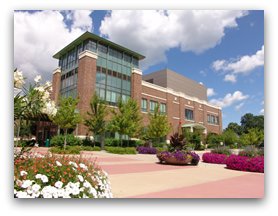Franciscan Healthcare is the only location in Wisconsin with a CRNA program.

Franciscan Healthcare CRNA Program
Mayo Clinic Health System
University of Wisconsin Lacrosse
700 West Avenue South
La Crosse, WI 54601
Quick Facts
CRNA Degree offered
DNP (entry level)
Program Length
36 months, full time
Credit Hours
77 semester hours
Starting Month
Late May
Application Deadline
Applications are accepted between July 1 and September 1.
Entire Cost of CRNA School at Franciscan Healthcare CRNA Program
Cost of In State Tuition: $76,674
*Fees and Total: $80,659
Cost of Non-Resident Tuition: $96,077
*Fees and Total: $100,062
*This includes the cost of books and miscellaneous school expenses.
Class Size
10 students each year.
Number of Applicants
Approximately 50 applicants. They interview between 30 and 35 applicants.
Program Affiliation
Franciscan Healthcare is a member of the Catholic Hospital Association and destiny.”
CRNA Program Summary
Are you concerned that the Franciscan Healthcare Nurse Anesthesia Program won’t give you the specific experiences or training you need to be a successful CRNA? Learn what standards CRNA Programs must meet in order to be accredited by the Council on Accreditation of Nurse Anesthesia (COA).
This CRNA program (as well as all others that are accredited by the COA) prepares you to take the CCNA certification exam at the conclusion of the program, allowing you to become a CRNA.
The CRNA program offered through the University of Wisconsin Lacrosse is an integrated program, with clinical experience starting in your second semester and intertwined with didactic curriculum throughout the rest of the program. Your heaviest academic load will be in the first two semesters.
Franciscan Healthcare provides patient care programs in medicine, surgery, all surgical specialties (except open heart surgery), pediatrics, psychiatry, obstetrics, gynecology, newborn nursery, Regional Neonatal Center, high-risk maternity care, and mental health.
A full complement of diagnostic and therapeutic services support the patient care programs as well as offering the student in the School of Anesthesia unshared availability for clinical experience.
Clinical experience in general surgery and is available to second-year students.
Your six-week rotation at Winona Community Memorial Hospital (30 miles away) will provide you with a variety of clinical experience.
An additional clinical site is available in Burlington, Wisconsin (250 miles from La Crosse) and is scheduled for “off class time” periods. The rotation was established for the sole purpose of providing regional experience within a pain management clinic setting. Transportation is the responsibility of the student; the School of Anesthesia pays for lodging.
Program Requirements
Looking for something specific? Find CRNA schools categorized by their unique requirements.
Some CRNA schools require much more out of their applicants than others. See how the requirements at Franciscan Healthcare compare to most CRNA school’s requirements.
CRNA Program Requirements
Required Bachelor Degree
Bachelor of Science in Nursing (B.S.N.) degree from an accredited school of nursing.
RN:
Current RN license with eligibility for Wisconsin
Critical Care:
18 months (24 months preferred) of nursing experience in a critical care setting.
Acceptable critical care experience includes:
- ICU
- Coronary Care Unit
- Surgical ICU
- Pediatric ICU
- Neonatal ICU
GPA:
Undergraduate GPA of 3.0 or better.
GRE:
No longer required to apply for the program.
CRNA Educational Requirements
Be a graduate of an accredited nursing program and have a minimum of:
- Microbiology (2 credits)
- Anatomy/Physiology (4 credits)
- Chemistry and/or physics (4 credits)
- Statistics (2 credits)
Franciscan Healthcare CRNA Program
CRNA School Performance
Accredited CRNA Programs are reviewed regularly.
Franciscan Healthcare Nurse Anesthetist Program was last reviewed 06/2016. It was given the maximum of 10 years accreditation and will be reviewed again 05/2026. This shows that the program is very stable.
Pass Rate for CRNA Boards at Franciscan Healthcare
First-time test takers: 100% (Class of 2020)
National average (2020): 85.2%
Attrition Rate : 0% (2020)
CRNA Employment Rate: 100% (2020)
CRNA Salaries
An average nurse anesthetist salary in Franciscan Healthcare CRNA Program, Wisconsin.
Wisconsin CRNA salaries are highly above the national average with an annual mean wage of $231,520.
An average annual nurse anesthetist salary in the US is $189,190 (according to the Bureau of Labor Statistics 2020 study)
Frequently Asked Questions
What kind of time commitment will I need to make?
You’ll need to spend approximately 2 hours studying for every 1 hour of class.
As for clinical experience, you’ll rotate in-house call experience and holidays when your rotation requires.
How much “time off” do I get?
You’ll be allowed up to 20 days of student time off (STO) each academic year.
You may use these days at your discretion as long as you have your clinical coordinator’s approval. These 20 days are inclusive of vacation, floating holiday, sick, conference time and funeral time.
Can I work as an RN while I’m in the program?
“Because of the heavy study demands of the program, students are limited to accepting outside employment only on those weekends when they are not committed to the program. Furthermore, students may not work an 11 to 7 shift when they must report to the program at 7 am the following day.”
Salaries pulled from Bureau of Labor Statistics
All information given on this site about Franciscan Healthcare’s Nurse Anesthetist Program was taken directly from their website.
Did you find an error on this page? Please report it here